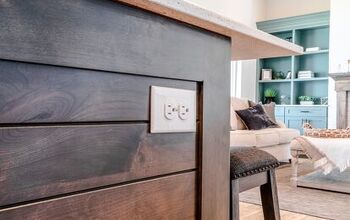9 Things You Shouldn’t Tell A Contractor

When you’re on the hunt for a contractor, it’s vital to ask the right questions and do your research. You want a person who knows their stuff, is reliable, honest, and ready to do a great job on your home project. But finding the right professional doesn’t mean you need to disclose every little detail to them. There are a few things you shouldn’t tell a contractor.
Don’t tell a contractor that you’re not in a hurry or what you have available to spend. Your contractor should know that you’re getting multiple quotes and want to be a part of the final decisions. But your contractor doesn’t want to hear about how your best friend is donating materials or you can do the electrical yourself.
Phrases Better Left Unsaid When It Comes To Your Contractor
Although open communication goes a long way in ensuring you get what you want, it doesn’t mean you spill every little detail. Your contractor needs to know things like what finishes you want, how you want a space to function, and where you want to add a closet.
You should feel at ease discussing deadlines, how the contractor is spending your money, and your style preferences. But you don’t need to tell them every tiny detail. For example, does your contractor need to know you have $100,000 in the bank? No, they don’t. Should you tell them that a certain price is too high for your budget? Sure.
Let’s look a little closer at the things you don’t want to tell your contractor.
1. I Have This Much Money To Spend
Don’t reveal an actual number to your contractor. If you tell a shoe salesman you have $40 to spend on shoes, the $20 pair they planned to show you may suddenly become $40. Start with quotes and estimates first.
See how much something will cost before they know what you have to spend. And just because you have the money doesn’t mean you can’t negotiate, but don’t nickel and dime them either.
If you want to work with a reputable, high-quality professional, they deserve to be paid their worth. But that doesn’t mean you should overpay either. Be smart about revealing your numbers.
2. My Friend Can Get Me A Deal On Materials
Your contractor isn’t going to stand behind any materials that they didn’t supply or source. Even if you trust your friend with your life, if the materials aren’t great quality, you won’t have much ground for replacing or fixing them. Plus, your contractor likely works with suppliers regularly, which enables them to get special pricing.
Another benefit is since your contractor is overseeing the project, they know exactly what sizes to purchase. But this doesn’t mean they get to choose everything. You still get the final say on what your home looks like, so let your contractor know you want to see options and make the final aesthetic decisions.
3. I’m Ready When You Are
It’s great if you’re not in a rush to complete a home project. It certainly makes it less stressful if you aren’t facing a strict deadline. However, if you allude to this with your contractor, you may end up waiting longer than you’d like.
If your contractor senses you aren’t in a hurry to get the job done, they may put other clients ahead of you on their schedule. When you’re interviewing potential contractors, ask them about their schedule and how soon they would be able to get to your house. Let them think you want it done as soon as possible and see where they put you on their schedule.
4. It’s So Overwhelming, You Can Decide
Would you let the person at the bridal salon choose your wedding dress? Would you tell the car salesman to pick whichever vehicle they think is right for you? Hopefully, your answer to these is no. If you said yes, you’d likely be buying the most expensive model, or at the very least, more than you need.
Therefore, don’t tell your contractor to make decisions for you. Listen to their professional expertise and guidance, but don’t let them call the shots. Ultimately, it’s your home and you get to decide what goes in it and what you’re willing to pay.
5. I Can Help With Some Of The Work
You may think chipping in with your DIY skills can save you thousands, but these words can send shivers down a contractor’s spine. Their name is on the finished project, so they want to make sure the work is done well and looks good.
They also already have a team of professionals they work with, so if you start doing the work, it puts some of their team out of commission. Your schedule might also not sync well with the contractor’s.
But, all that aside, it’s not 100% out of the question to ask the contractor if there is anything you could do to help reduce costs. For example, if they’re installing new drywall, you might request they install and get it paint-ready, but you’ll do the painting.
But if you start offering to run electrical or install the HVAC system, your contractor will give you a hard no (unless you’re a licensed professional and acquire all the proper permits).
6. I’m Old School, A Handshake Will Do
No, no, no. Do not agree to anything with only a handshake as backup, even if you and your contractor are the most honest people in the universe. A contract protects both of you in case anything goes awry during your project.
7. Can I Pay In Full For A Lower Price?
Your contractor might be willing to lower their price if you offer to pay upfront in full. But this is a bad idea. First, what if they aren’t as reputable as you think? Then they take the money, do a little bit of work, then head for the hills with your cash.
Or, they are an upstanding, respected contractor who has every intention to do the work. But then something happens and they get delayed. You need things finished, but they already spent your money on materials or labor or other jobs, not expecting an emergency to pop up.
Now, you don’t have funds to hire a new contractor, and you’re in a sticky situation trying to retrieve your money from the first person. It’s just messy, iffy, and a slippery slope to be on, so stick with a deposit and pay by milestones.
8. I Don’t Plan To Get Other Quotes
Even if a contractor comes highly recommended, don’t skip getting a few quotes. It’s wise to get at least three different estimates from professionals when facing a big decision or renovation. Regardless, don’t let a contractor know they’re the only one you’re talking to.
At least make them think you’re waiting on a few other quotes or planning to get a few more opinions before you decide. If a contractor believes they’re your only option, it’s likely to influence their pricing and stretch out your timeline.
9. You’ll Just Work On The Inside When It Rains?
Nobody can control the weather, and if it’s raining or snowing or there are any other inclement conditions, it could slow down progress. Many contractors will adjust their schedule to accommodate unexpected weather situations, for example, working on the interior instead of the exterior. However, this isn’t always an option.
Plus, there could be some interior work that can’t get done because the workers can’t get to your house because of flooding. Or they can’t get the appropriate equipment to the work site, etc.
Your contractor is a professional who knows what can and can’t be done when the weather decides to be uncooperative. Therefore, remain reasonable and trust them. Don’t demand they continue to work despite the weather. It could compromise the work and it also could pose potential risks to their safety.
Your Contractor Doesn’t Need To Know Everything
Good communication with your contractor is vital to a successful finished project. Be willing to ask questions about deadlines, pricing, and decisions, but don’t share every detail about your bank account.
Let your contractor know that you want to remain informed and help with decisions. Make sure they’re aware of your vision for your home and how you’d like it to function. But don’t offer to pay upfront, seal the deal with a handshake, or butter them up by telling them they’re the only person you’re talking to.
It’s okay to leave a little to the imagination when it comes to your contractor. It gives you a bit of leverage and reduces the risk of overpaying or having your project run over deadlines.
Related Guides:

Stacy Randall is a wife, mother, and freelance writer from NOLA that has always had a love for DIY projects, home organization, and making spaces beautiful. Together with her husband, she has been spending the last several years lovingly renovating her grandparent's former home, making it their own and learning a lot about life along the way.
More by Stacy Randall



























